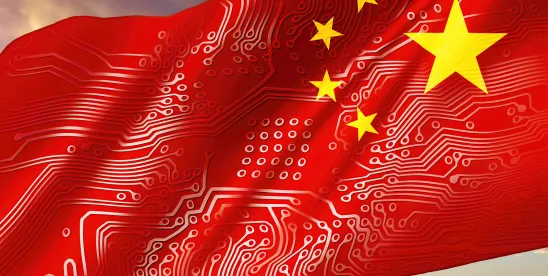On June 27, 2025, China’s National Intellectual Property Administration (CNIPA) held their monthly press conference. Two highlights include the status of the “Blue Sky” patent agency rectification campaign and the use of artificial intelligence (AI) in patent examination. CNIPA stated that it imposed “centralized rectification of 35 institutions that have been found to have a large number of abnormal applications, and intends to impose heavy penalties such as suspension of business and license revocation.” With respect to AI, CNIPA stated, “in the near future, we will further upgrade the application of artificial intelligence in patent examination work, and help examiners better understand invention conception and conduct technical analysis faster by improving the accuracy of searching prior art, so as to provide stronger support for improving the quality and efficiency of examination.” Further, “the [AI-generated] results generated cannot be directly used as examination opinions. “
Excerpts follow. The full transcript is available here (Chinese only).
[CCTV reporter] It is understood that the National Intellectual Property Administration has been carrying out the “Blue Sky” campaign for the agency industry for seven consecutive years. This year’s campaign emphasizes “comprehensive governance”. What new measures have been taken in terms of comprehensive measures? What progress has been made at this stage?
[Wang Peizhang, Director of the Intellectual Property Promotion Department of the CNIPA] This year’s’ Blue Sky ‘campaign has made phased progress in multiple aspects. In terms of investigating major cases, we have organized relevant local authorities to investigate and handle 12 key institutions based on clues such as fraudulent use of enterprise information, forgery of official seals and documents, and illegal fabrication of patents. Four of them have been filed. For some individuals suspected of forging official seals, they are being transferred to the public security organs for strict punishment. In terms of rectifying abnormal patent application behavior through agency, the National Bureau has carried out centralized rectification of 35 institutions with a large number of abnormal patent applications through investigation, and plans to impose heavy penalties such as suspension of business and license revocation. 65 relevant institutions have been investigated in various regions, and warnings, fines, and other penalties are planned to be imposed separately. In terms of centralized cleaning of non-standard business solicitation behavior, 89 instances of improper marketing behavior such as “package authorization” and impersonation of official names discovered during daily supervision were investigated and guided by relevant departments to conduct centralized cleaning within a specified period of time for 10 platform enterprises. A patent and trademark agency business marketing prohibition and restriction lexicon was sent to promote the establishment of a normalized review mechanism and effectively fulfill platform responsibilities. In terms of comprehensively strengthening daily management, 30 patent agencies and branches that do not meet the establishment conditions will be organized to rectify within a specified period of time and listed in the list of abnormal business operations. We will strengthen the annual report review of patent agencies, and list 156 institutions that have not implemented the annual report system in the list of abnormal business operations. We conducted investigations into over 50 institutions suspected of obtaining practice licenses through concealing true information and fraudulent means.
Next, we will continue to strengthen the comprehensive governance of the industry, coordinate the use of policy guidance, approval and filing, administrative penalties, daily supervision, publicity and education and other measures, continuously purify the industry environment, and provide high-quality service guarantees for the improvement of patent quality. Thank you.
[China News Service reporter] Currently, artificial intelligence technology is being widely used in various fields. What is the attitude of the National Intellectual Property Administration towards the use of artificial intelligence to assist in examination? Can the reasoning results of artificial intelligence be directly used as examination opinions?
[Jiang Tong, Director of the Examination Business Management Department of the Patent Office of the CNIPA] Thank you for your question, Jiang Tong. Artificial intelligence, as a strategic technology leading a new round of technological revolution and industrial transformation, is profoundly changing the way humans produce and live, and also bringing new development opportunities for global intellectual property governance. In recent years, intellectual property institutions in major countries and regions such as Europe, America, Japan, and South Korea have attached great importance to artificial intelligence technology and have incorporated it into their strategic planning, actively exploring its application in review work. Our bureau has also been highly concerned about the impact of artificial intelligence on intellectual property work, especially our massive intellectual property data resources and rich application scenarios, which are very suitable for the system development, technical training, and iterative upgrading of artificial intelligence large models.
In order to explore the use of artificial intelligence technology to improve the quality and efficiency of patent examination, our bureau launched a patent intelligent examination and retrieval system in 2023, and conducted experiments in multiple business scenarios such as intelligent semantic retrieval based on invention concepts, image retrieval based on partial designs, and automatic clustering and allocation of case files, all of which have shown great application prospects. In the near future, we will further upgrade the application of artificial intelligence in patent examination work, by improving the accuracy of searching patent comparison documents and other methods, to help examiners better understand the invention concept, conduct technical analysis faster, and provide stronger support for improving the quality and efficiency of examination.
Here, it should be noted that the application of artificial intelligence in patent examination plays a role in assisting the examination, and the results generated cannot be directly used as examination opinions. In the practice of examination, examiners must objectively make examination conclusions in accordance with the provisions of the Patent Law, its Implementing Regulations, and Patent Examination Guidelines. Thank you.



 />i
/>i
